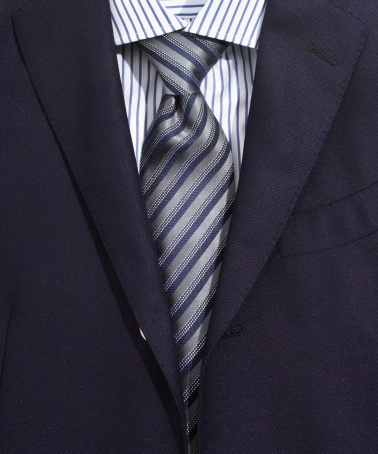
What you’re wearing definitely affects whether people follow your lead or do what you say.
Via 100 Things Every Presenter Needs to Know About People:
You’ve probably heard the phrases “Clothes make the man” and “Dress for success.” These are two sayings that actually have research to back them up.
Lefkowitz, Blake, and Mouton (1955) had an experimenter in a city cross the street against the traffic. When he was dressed in a suit, three-and-a-half times as many people followed him as when he was wearing a work shirt and trousers. Business suits are a form of authority clothing.
In a study by Bickman (1974), the experimenter stopped a person on the street, pointed to an accomplice 50 feet away, and said, “You see that guy over there by the meter? He’s overparked but doesn’t have any change. Give him a dime!” The experimenter would then leave. The “guy over there” was part of the experiment. When the experimenter was wearing a uniform (for example, a guard uniform), most people complied with the instruction to give the other person money for the parking meter. When he was dressed in regular street clothes, compliance was less than 50 percent.
Clothes really do make a difference. In fact:
Join over 180,000 readers. Get a free weekly update via email here.
This piece originally appeared on Barking Up the Wrong Tree.
Related posts:
A Navy SEAL Explains 8 Secrets To Grit And Resilience
New Harvard Research Reveals A Fun Way To Be More Successful
More Must-Reads From TIME
- Dua Lipa Manifested All of This
- Exclusive: Google Workers Revolt Over $1.2 Billion Contract With Israel
- Stop Looking for Your Forever Home
- The Sympathizer Counters 50 Years of Hollywood Vietnam War Narratives
- The Bliss of Seeing the Eclipse From Cleveland
- Hormonal Birth Control Doesn’t Deserve Its Bad Reputation
- The Best TV Shows to Watch on Peacock
- Want Weekly Recs on What to Watch, Read, and More? Sign Up for Worth Your Time
Contact us at letters@time.com